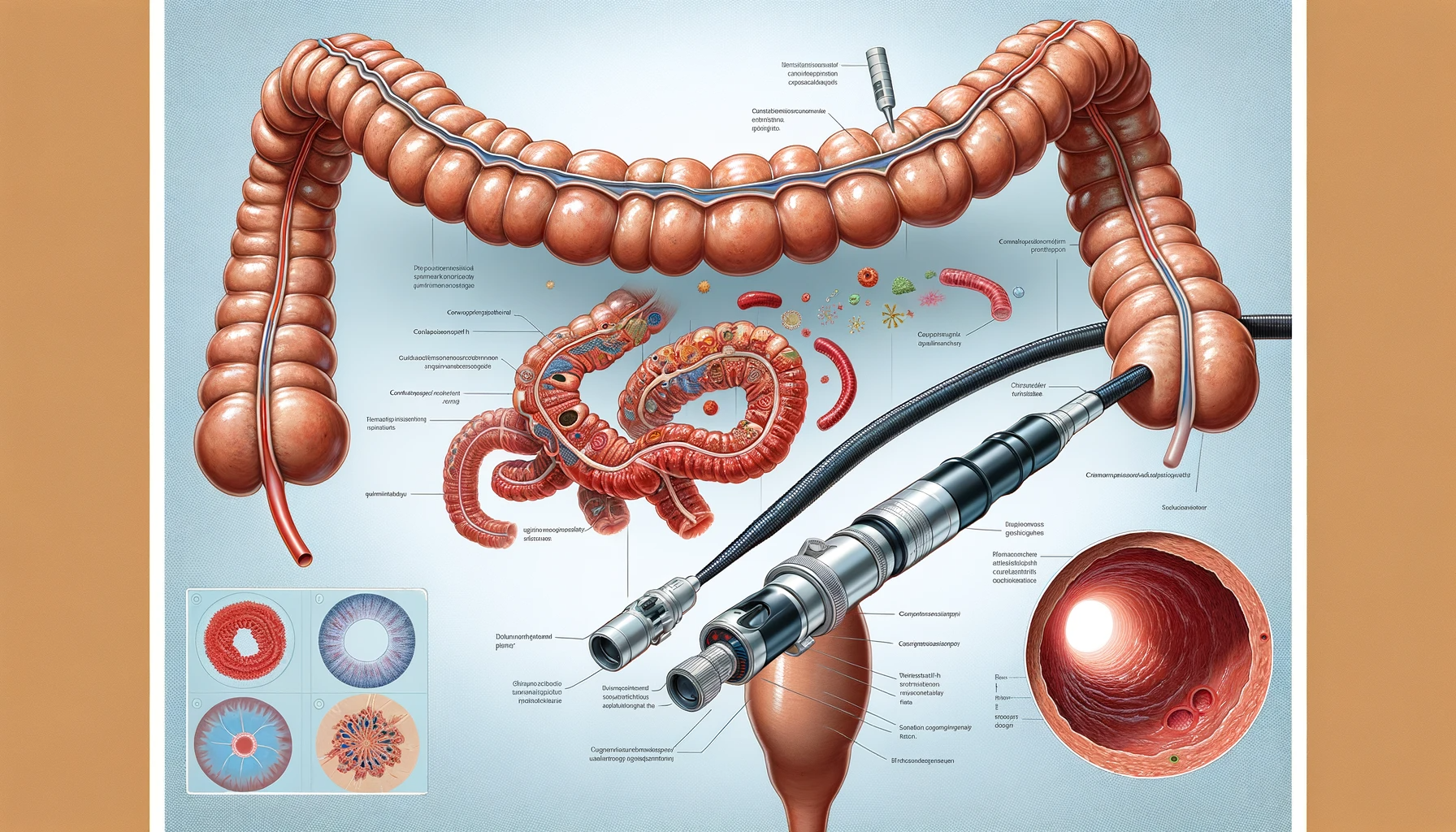Understanding Colonoscopy
Terry Power
Colonoscopy is a commonly performed medical procedure that allows doctors to examine the inner lining of the large intestine for any abnormalities or diseases. It is a vital tool in the early detection and prevention of colorectal cancer, as well as the diagnosis and management of various gastrointestinal conditions.
This procedure involves the use of a flexible tube with a camera attached, which is inserted through the rectum and guided along the colon. While the thought of undergoing a colonoscopy may seem daunting, it is essential to understand the importance of this procedure in maintaining optimal health.

This article aims to provide a comprehensive understanding of colonoscopy, including its purpose, preparation, procedure, and post-procedure care, to assist individuals in making informed decisions about their healthcare.
What Is a ColonoscopyA colonoscopy is a medical procedure in which a flexible tube is inserted into the rectum and advanced through the colon to visually examine the lining of the large intestine. It is a commonly used diagnostic tool for evaluating various gastrointestinal conditions, including colorectal cancer, polyps, and inflammatory bowel disease.
While colonoscopy is generally considered safe, there are some risks and complications associated with the procedure. These can include bleeding, perforation of the colon, and adverse reactions to sedation. However, the overall risk of these complications is low.
For individuals who are unable or unwilling to undergo a colonoscopy, there are alternative screening methods available. These include fecal occult blood test (FOBT), flexible sigmoidoscopy, and virtual colonoscopy.
It is important to discuss the benefits and drawbacks of each option with a healthcare provider to determine the most appropriate screening approach.
Why Is a Colonoscopy PerformedColonoscopy is performed to diagnose and evaluate various gastrointestinal conditions, using a flexible tube inserted into the rectum and advanced through the colon to visually examine the lining of the large intestine. It is a crucial procedure that helps detect and prevent colorectal cancer, the third leading cause of cancer-related deaths. Other reasons for performing a colonoscopy include investigating the cause of unexplained changes in bowel habits, abdominal pain, rectal bleeding, and screening for polyps or inflammatory bowel disease. While colonoscopy is generally safe, it is important to be aware of potential risks and complications such as bleeding, perforation, and adverse reactions to anesthesia. In some cases, alternatives to colonoscopy, such as fecal occult blood test, sigmoidoscopy, or virtual colonoscopy, may be considered based on individual circumstances and preferences.
Reasons for Colonoscopy
Detect and prevent colorectal cancer
Investigate unexplained changes in bowel habits
Evaluate abdominal pain and rectal bleeding
Screen for polyps or inflammatory bowel disease
To prepare for a colonoscopy, patients must undergo a specific set of instructions to ensure a thorough examination of the large intestine. The preparation process typically involves the following steps:
Diet restrictions: Patients are usually advised to follow a clear liquid diet for a day or two before the procedure. This includes consuming clear broths, juices, gelatin, and avoiding any solid foods that could interfere with the examination.
Bowel cleansing: It is crucial to empty the colon completely for a successful colonoscopy. Patients are often prescribed a bowel preparation solution or laxatives to induce bowel movements and cleanse the colon thoroughly.
Alternative procedures: In certain cases, patients who are unable to undergo a traditional colonoscopy may be offered alternative procedures such as virtual colonoscopy or flexible sigmoidoscopy. These procedures have their own preparation requirements and may be recommended depending on the patient's specific needs and circumstances.
During the colonoscopy procedure, a flexible tube is inserted into the rectum to examine the large intestine. This procedure is typically performed to screen for colon cancer, detect and remove polyps, and investigate gastrointestinal symptoms. It is considered the gold standard for colon cancer screening due to its ability to provide a detailed examination of the colon.
While colonoscopy is generally safe, there are risks and complications associated with the procedure. These include bleeding, infection, bowel perforation, and adverse reactions to sedation. However, these risks are rare and can be minimized with proper preparation and experienced medical professionals.
For individuals who cannot undergo a colonoscopy or prefer alternative options, there are alternatives available. These include stool tests, virtual colonoscopy, and sigmoidoscopy. However, it is important to consult with a healthcare professional to determine the most suitable screening method based on individual circumstances and risk factors.
Risks and Complications
Alternatives to Colonoscopy
Bleeding
Stool tests
Infection
Virtual colonoscopy
Bowel perforation
Sigmoidoscopy
Adverse reactions to sedationAftercare and Recovery From a Colonoscopy
Following a colonoscopy procedure, proper aftercare and recovery measures are crucial for ensuring optimal healing and minimizing any potential complications. Here are some important steps to take during the recovery period:
Dietary restrictions: It is common to experience temporary dietary restrictions after a colonoscopy. Your doctor may advise you to avoid solid foods for a few hours and gradually reintroduce them as tolerated. Increasing your fluid intake and consuming a balanced diet rich in fiber can help prevent constipation and aid in the healing process.
Rest and recovery: It is important to rest and allow your body to recover after the procedure. Take it easy for the rest of the day and avoid strenuous activities. Give yourself time to recuperate and regain your energy.
Monitor for potential complications: While complications after a colonoscopy are rare, it is essential to be aware of any signs of infection, excessive bleeding, or severe abdominal pain. Contact your healthcare provider immediately if you experience any of these symptoms.
